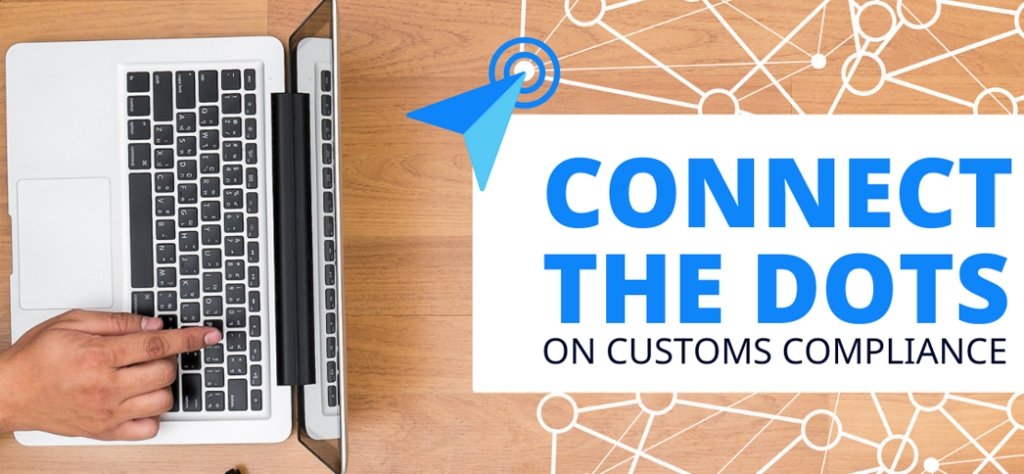So, where can you turn for help? Customs brokers and customs compliance technology.
Customs brokers are more than just intermediaries; they are key players who keep the wheels of global trade turning. Whether deciphering tariff codes or speeding up customs clearance, these professionals keep goods moving across borders efficiently and legally. Let’s dive into the details and explore the technology required to make customs brokers’ activities more effective.
Understanding the Role of a Customs Broker
Have you ever had to deal with the headache of getting a package through customs? If your business is very import and export-heavy, it’s a challenge times 1000. That’s where a customs broker makes customs compliance easier, so all you have to worry about are your core competencies.
Day-to-Day Responsibilities of a Customs Broker
A big part of a customs broker’s daily grind is the precise classification of goods under international trade laws, known as the Harmonized System (HS) codes. It’s like solving a puzzle where every piece or product needs the correct label to fit. If you get it wrong, delays or extra fees will start accumulating.
Customs brokers’ job doesn’t stop there. Think of all the paperwork that global trade management involves — invoices, bills of lading, certificates of origin, you name it. Customs brokers manage this avalanche of documents, making sure everything is spot-on and submitted on time. They’re also the go-to experts for determining the value of goods (essential for calculating duties) and paying all duties and taxes correctly and on time.
How Brokers Help Businesses Maintain Customs Compliance
Without a customs broker, your business can easily overlook complex customs rules. Customs brokers track every regulation change and update you regularly to avoid costly mistakes and penalties. They also ensure all the paperwork is spotless to help goods get through customs faster.
Essential Tools for Customs Brokers
How do customs brokers keep their cool in the high-pressure world of international trade? Two ways are relying on customs compliance software and data analytics platforms to cut through red tape and streamline processes.
Trade Compliance Software
Trade Compliance Software is like having a smart, reliable assistant who keeps everything related to international trade and customs compliance in check. It prevents you from getting bogged down in the nitty-gritty of rules and regulations so you can focus on growing your business. Customs brokers and businesses that need to keep their operations smooth and penalty-free across different countries benefit.
With this software, you can also automate the tedious parts of compliance, like making sure you’re paying the proper duties and keeping track of every transaction detail. No more frantic scrambles to find paperwork during an audit — it’s all there, neatly organized and easy to access. It even helps you spot potential issues before they become problems, from sudden tariff changes to unexpected supply chain delays. Plus, it integrates seamlessly with your existing systems for a streamlined process.
Data Analytics Platforms
Think of data analytics platforms as the Swiss Army knife for customs brokers, cutting through the red tape of international trade with deep intelligence. These platforms transform the day-to-day operations of customs brokers by automating mundane tasks like data entry. Not only does this save time, but it also reduces the chances of human error so that brokers can focus on more critical aspects of their jobs. They can also access a wealth of supply chain insights and maintain transparency throughout the import lifecycle, from paperwork to delivery.
However, benefits don’t stop at streamlining operations. Data analytics also elevate risk assessment and decision-making by predicting and mitigating risks before they become problems. By analyzing historical and real-time data, customs brokers can detect potential fraud, assess trader reliability, and address issues early while making informed decisions.
Steps You Can Take to Enhance Customs Compliance
- Conduct Regular Customs Audits: Regularly check that your customs activities comply with the latest regulations. Review your goods: their classification, calculations, and duties. Promptly fixing any issues helps avoid delays and fines.
- Stay Informed on Trade Laws: Trade laws can change quickly. Keep up by regularly checking updates from international trade organizations and government websites. Understanding new rules helps you adjust your customs compliance processes.
- Implement Customs Software: Use technology to make your life easier. Customs software can automate complex tasks like classifying tariffs and calculating duties. It also keeps digital records that are invaluable during audits.
- Build Relationships with Customs Officials: A good working relationship with customs officials can make the shipping process smoother. Regular conversations can help you better understand what they expect from you and quickly solve any issues.
- Train Your Team Continuously: Make sure your team is in tune with the latest customs regulations and practices. Regular training ensures everyone knows how to handle customs efficiently and keeps your business compliant and operational.
Calculate your potential Saving While Using an enterprise TMS
Stay Ahead of Customs Compliance
Ready to get a leg up on the latest in customs compliance?
Download MercuryGate’s “Global Trade Solutions” eBook for all the insights you need. Watch our webinar for a deeper dive into how MercuryGate’s Smart Transportation platform supports customs compliance. It will equip you with the right global trade knowledge required to keep your trade moving forward across the U.S. border.


